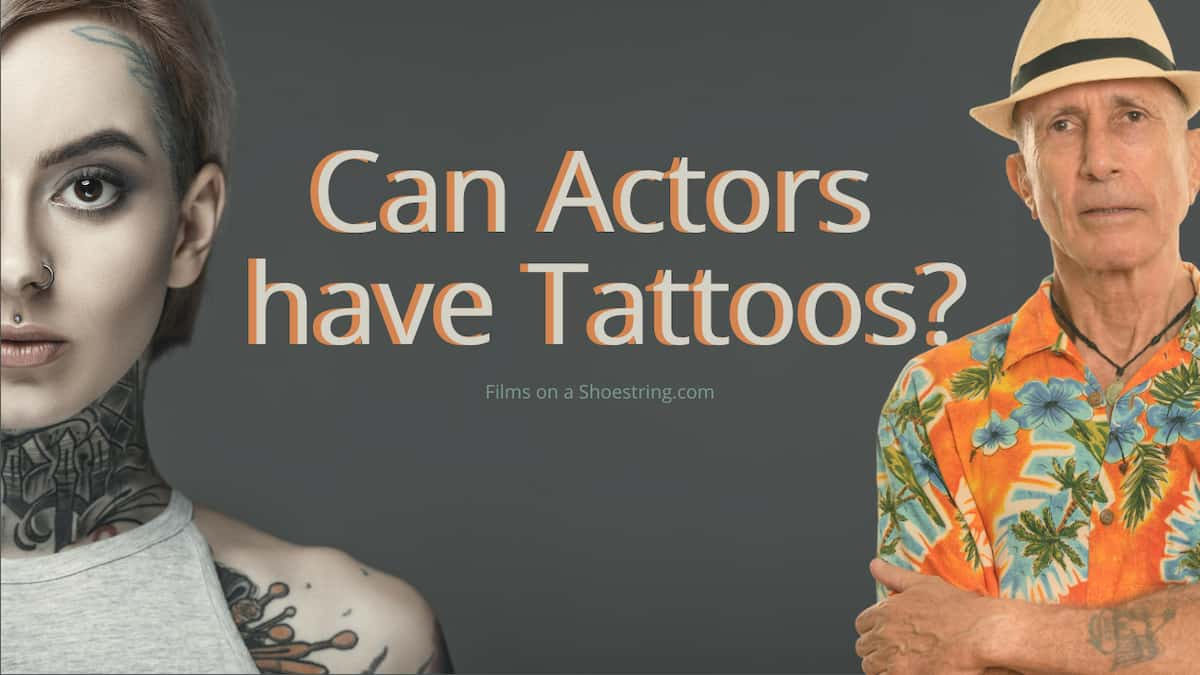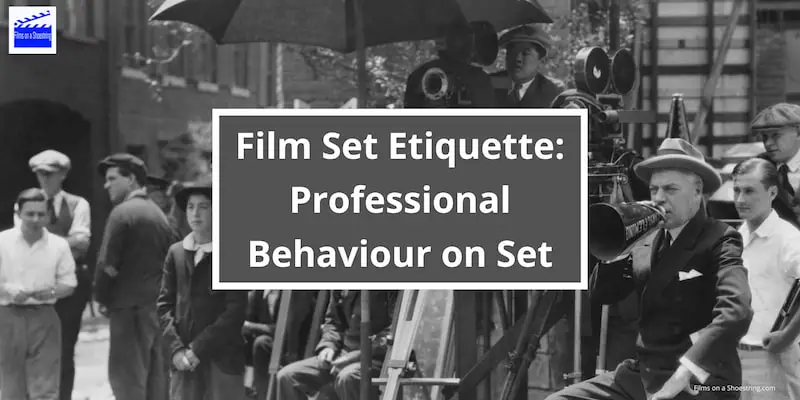Can actors have tattoos? We take a look at the implications for actors thinking about the first, or next, tattoo.
As tattoos have become increasingly common in popular culture, more and more actors are getting inked. The rise in recent years of actors with tattoos has led to questions about how they may affect employment opportunities. After all, actors are often cast in roles that may require them to look a certain way. So, can actors have tattoos and still be successful in their craft?
In this blog post, we’ll be exploring the effects of tattoos on actors and the potential implications for their future prospects. We’ll examine the changing attitudes towards tattoos in the industry as well as the legal considerations that actors should keep in mind. We’ll also discuss the potential impact of tattoos on an actor’s career and the strategies that can help them maximise their success.
Famous Actors with Tattoos
Obviously, the first issue to address is the large number of famous actors with tattoos.
Tom Holland, Brad Pitt, Elijah Wood, Ryan Gosling, Sandra Bullock, Helen Mirran, and Scarlett Johansson are just a few of the famous actors who gladly display their tattoo or extensive body.
There are two things to consider here.
Firstly, their names get productions green lit. If a production gets them on board, the finance comes in because the large number of fans guarantees an audience. That’s a completely different power play to the jobbing actor hoping to get three lines from a casting director who had to wade through a thousand submissions for the role.
Paying a makeup artist to spend time each shoot day hiding a visible tattoo is worthwhile if it gets your stars and finance on board. It’s not a worthwhile expense for an actor few people in the audience will even notice.
Secondly, study the tattoo each actor chooses to display. It’s often down the back, easily hidden by costumes, or down the arms stopping at the wrists, where a long sleeved top comes to an end. That’s all carefully chosen, so a visible tattoo does not become an issue for the types of role that actor is known for.
What’s Your Casting Type?
Your showreel and headshots have to quickly show a casting director what casting type you are, and whether you can realistically play the role you have been submitted for.
They won’t invite an 80 year old lady in for the role of mob boss, unless it’s relevant to the script. Similarly, you won’t be invited in for the role of equity manager or cop sporting a heavily decorated face and neck.
So to get access to the widest possible range of roles available, steer clear of tattoos which can’t be hidden by clothing.
However, there are many roles where the tattoos can be a plus, along with an edgy haircut or shaved head, a philtrum or septum piercing, or some industrials and other ear and facial jewellery. Often these are roles for troubled or problematic characters, requiring a careful overall look and physical presence.
Choose Your Tattoos Carefully
Even if this is a good casting type for you, be careful in your choice of tattoo. The names of your children or loved ones on your face and neck could be difficult to hide without additional work from a talented makeup artist, and as production timescales are tight, an alternative actor will be chosen to keep time in makeup to a minimum.
Challenging symbols will also be a problem. Anything which suggests you are hateful about any other nationalities or groups of people will flag up to casting teams that you may not work calmly and smoothly on a production set.
Production teams will also worry about the legal implications of body art copyright. When you get tattoos done, ask the tattoo artist to sign a carefully worded release form that allows their art to be shown on screen without any further rights or payment.
YouTube – COVERING UP TATTOOS FOR AN AUDITION
Matching Tattoos to Your Casting Type
If your casting type fits in well with getting a tattoo, then it can be an opportunity to get selected by a casting director from a smaller crowd of contenders for the role.
But think ahead to future roles, when your age means you’re considered for a different type of role.
Being cast as a young edgy student or young druggie can get you some interesting acting roles. And if you become the leader in a niche, with fans flocking to your tik tok channel or latest instagram story to follow your career, it may pave the way for the work to continue coming in.
But if your tattoos are on your hands, neck and face, they can’t be covered up when you want to start chasing the more common roles for older people as parents, grandparents, and professionals.
It’s a decision which needs to be thought through carefully.
Temporary Tattoos
Obviously, one of the common ways actors can try out their tattoo image is to use temporary tattoos to experiment. It gives you the chance to work out the correct positioning if you think a visible tattoo would do harm to your acting career, and the tattoo artist aesthetic which would fit in well with the types of roles you’ve targeted as suitable for your casting type.
Background Actors with Tattoos
All the same issues for actors with tattoos also apply to background actors, otherwise known as supporting artistes or extras.
You have to be signed up with a reputable extras casting agency to even be considered by the crowd casting director’s team for a spot in the background of your favourite TV shows and movies.
Most extras agencies won’t consider applicants with a visible tattoo, or just take on a limited number for special requests. That tells you instantly that productions rarely want background actors with tattoos visible to the audience.
But it is worth applying if you have a tattoo that can be hidden, as most background roles will consider people whose arms and legs can be covered.
And if an agency says they will accept applications from people with a visible tattoo, then apply and see if they think you’re a good fit. For certain scenes, background actors with tattoos are an essential setting for the action.
Reputable agencies rarely accept people they don’t think will win work, although the commonplace practice of charging people an annual fee for representation is making it very difficult to distinguish between the reputable agencies and scam agencies.
Do Directors Care About Tattoos?
Directors work hand in hand with Casting Directors. But often, the Casting Director has examined hundreds, if not thousands, of brief submissions and run the first round of casting sessions before the Director gets to see the shortlist of five or six actors under consideration.
By this stage, the Casting Director has sifted out everyone who even hints at being unsuitable for a role. A visible tattoo for a role where it would distract or look at odds with the screen character is one of many small details used by casting directors to get a huge pool of submissions down to a select few actors for serious consideration.
If a tattoo or extensive body work is crucial to the role, then it could be very helpful to get you selected. But the more major the role, the easier it is to choose the actor first and then apply temporary tattoos. Fake tattoos can look very good when applied by a talented makeup artist.
So, Can Actors Have Tattoos?
Yes, actors can have tattoos. But it’s best not to choose a visible tattoo unless it fits in very well with your casting type. Otherwise you will be limiting the number of roles casting directors will consider you for.







